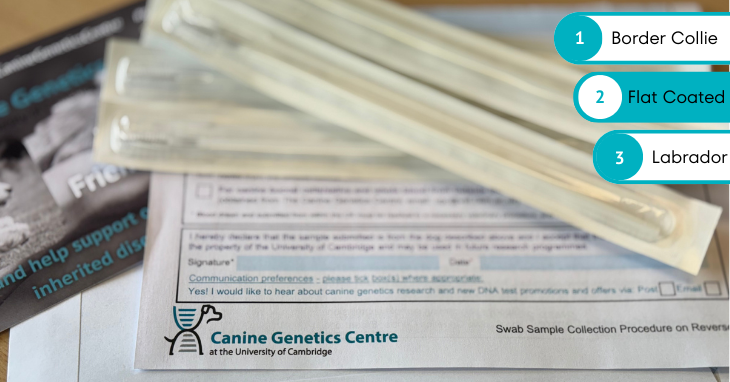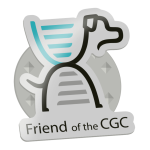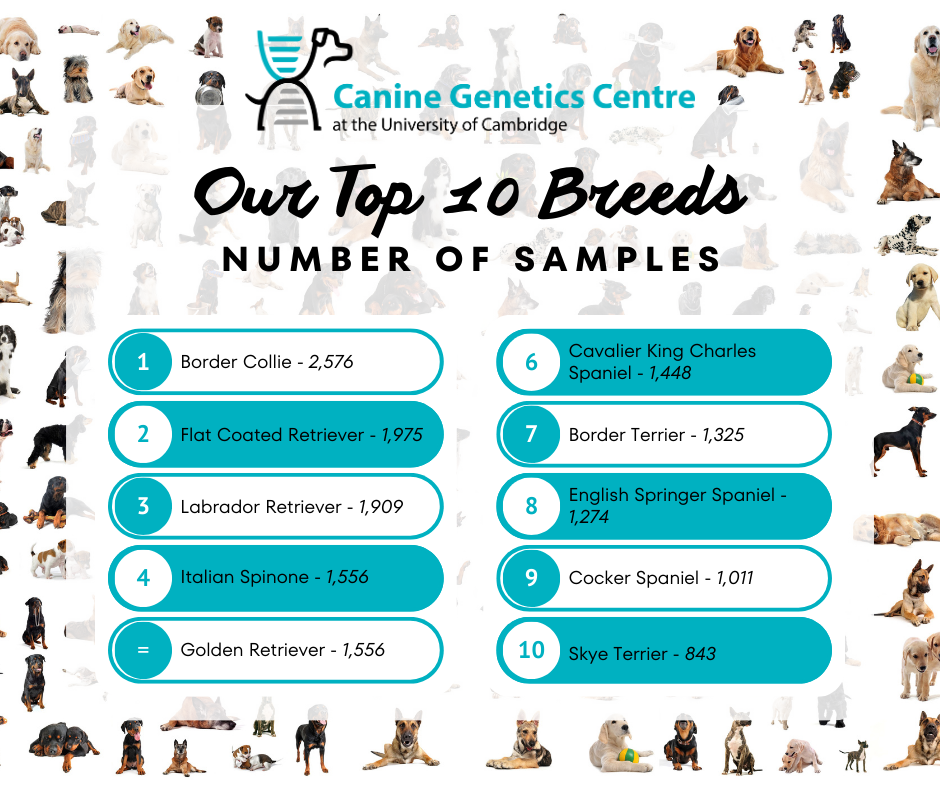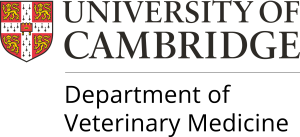
Unique is a word that is often overused. But when it comes to discussing the Canine Genetics Centre’s collection of DNA samples, which dates back to the early 1990s, we are confident that use of the word unique is justified. The CGC is fortunate to have a dedicated member of staff, Bryan McLaughlin, who manages this unique canine resource and has been a member of the CGC for 19 years.
Which samples are stored in the CGC’s collection?
The CGC has over 42,000 DNA samples stored, from dogs of 215 different breeds, and we typically add around 2000 new samples to the collection each year. And whereas the majority of the samples are from UK dogs, samples from countries across the globe are represented in the collection.
Some of the samples have been collected as part of targeted efforts, to amass samples for breed- or disease-specific research projects, whereas others have been submitted ‘opportunistically’, by veterinarians who have recognised a potentially novel disease in one of their patients, or by individual dog owners, with a personal motivation to assist the CGC’s research.
For all our research projects we need DNA from both affected and unaffected dogs; approximately one third of the samples are from dogs affected with at least one presumed inherited disease, whereas the rest are from dogs reported to be healthy.
The top 10
We have samples from over 215 different breeds, but we inevitably have more samples from some breeds than others. The 10 breeds for which we have the most samples are listed below – some of them might surprise you!
What are the samples used for?
To date, the sample collection has helped the CGC to identify 34 different disease-associated genetic variants, most of which form the basis of DNA tests that are offered globally to conscientious dog breeders, to help reduce the incidence of disease in breeds at risk.
The CGC also regularly shares samples with numerous collaborators worldwide and have thus contributed, and so the collection has contributed to many more success stories over the years.
We also use the sample collection to estimate the frequency of disease mutations in UK breed populations – and we can do this for the disease variants that the CGC identifies and also those identified by other research teams as well.
How much has the sample collection cost to develop?
The cost of collecting over 42,000 DNA samples has been shared by many different sources, including:
- general financial support for the CGC (provided by the Kennel Club and the Kennel Club Charitable Trust),
- research grants to study specific inherited disorders (awarded by funding bodies including the Petplan Charitable Trust, Dogs Trust, the American Kennel Club Canine Health Foundation and the Waltham Foundation), and
- Breed Clubs and societies who have provided funds to archive samples from their breeds.
We estimate a figure comfortably in excess of £420,000 has been invested to develop the collection, although its contribution to canine health is arguably priceless as without the DNA sample collection none of the CGC’s research would have been possible.
How much does the DNA sample collection cost to maintain?
During 2025 the CGC expects to spend £76,000 adding new samples to its collection, as well as maintaining the samples already stored.
This figure includes the costs for:
- mailing out DNA collection kits to owners, breeders and vets
- processing the DNA samples when they are returned
- maintaining and updating our bespoke sample database
- reaching out to owners for updated health information, so that the samples are always ‘research ready’
- sharing samples with collaborators
- replacing freezers
This represents about £1.80 for every sample stored.
Currently, the Canine Genetics Centre does not have any funding specifically for maintaining this unique resource.
 If you would like to contribute towards the cost of maintaining the CGC’s DNA sample collection, please consider becoming a Friend of the CGC. Regular donations from our Friends enable us to plan for the future and will help secure the future of the CGC’s unique DNA sample collection.
If you would like to contribute towards the cost of maintaining the CGC’s DNA sample collection, please consider becoming a Friend of the CGC. Regular donations from our Friends enable us to plan for the future and will help secure the future of the CGC’s unique DNA sample collection.


